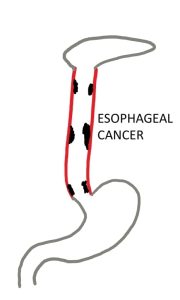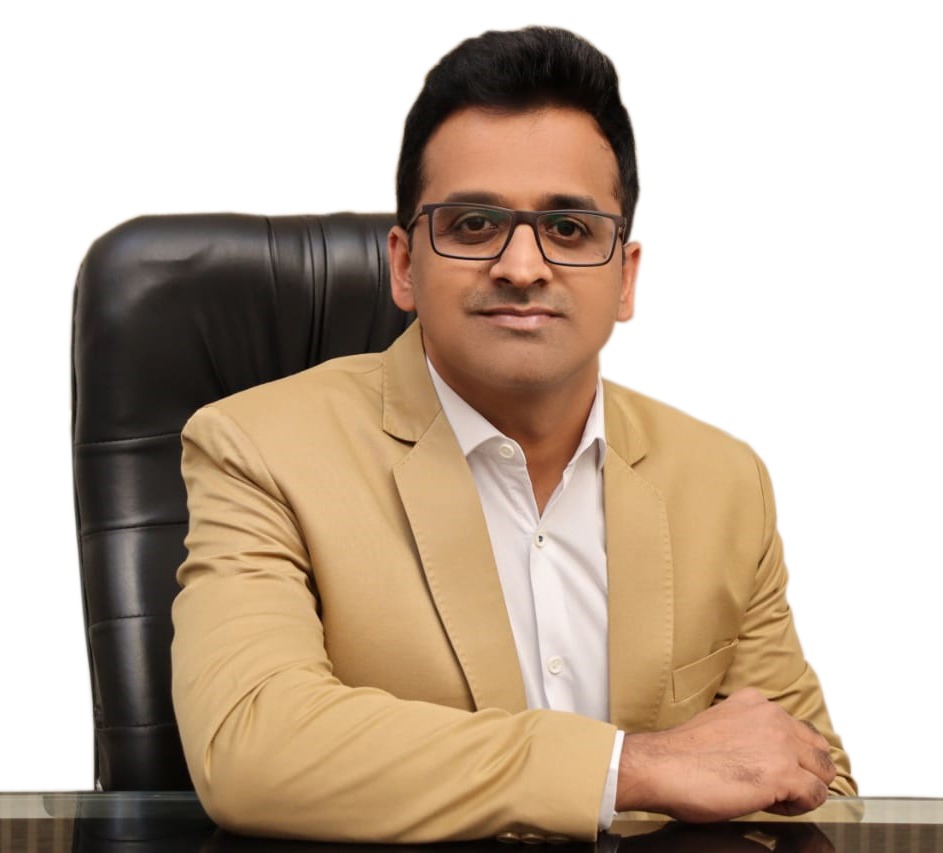If you’re struggling with gastrointestinal diseases, pay a visit to Dr. Dinesh Reddy who is a skilled gastroenterology doctor in Hyderabad. Along with his team of medical specialists, he offers treatments with excellent results to his patients.
Dr. Dinesh understands the various complications of gastrointestinal diseases and the impact they have on our day-to-day lives. Therefore, he works hard to provide optimal care for his patients with a friendly and compassionate approach.
Take the first step towards relief and book an appointment with leading gastroenterology specialist in Hyderabad. Experience the best treatment for gastrointestinal diseases with Dr. Dinesh Reddy and his team of specialists.

Esophageal cancer is a malignant condition that affects the esophagus, the tube connecting the throat to the stomach. It often starts in the esophageal lining and spreads to surrounding organs and tissues. Swallowing issues, weight loss, chest pain, and a persistent cough are possible symptoms. Early detection and treatment are essential for better results.
Proper diagnosis is crucial for timely and effective management and treatment of esophageal cancer. The various methods used by professionals to diagnose esophageal cancer are:
Surgery is the most common treatment method for Esophageal Cancer. The procedure is called Esophagectomy In which the cancerous part of the esophagus is removed and the stomach is pulled up and joined to the remaining esophagus.
Chemotherapy is a cancer treatment that employs medications to stop the growth of cancer cells in order to either kill the cells or stop them from dividing any further. Systemic chemotherapy medications can reach malignant cells throughout the body when they are directly ingested or injected into a vein or muscle. Regional chemotherapy targets cancerous cells primarily in the cerebrospinal fluid, an organ, or a bodily cavity such as the abdomen.
Radiotherapy is a sort of cancer treatment that uses high-energy x-rays or other radiation to eradicate or stop the growth of cancer cells. There are mainly two types of radiotherapy that exist:
The type and stage of the cancer being treated determines how the radiation therapy is administered.
Although endoscopy was limited only to diagnose EC, recent developments have resulted in it being increasingly used to treat tumors. While novel endoscopic procedures and devices have simultaneously enabled endoscopists to treat pre-cancerous lesions and even early ECs, the development of advanced camera technology has improved disease identification.
Esophageal cancer is more common in men than in women. Men have a higher risk of developing this type of cancer compared to women. The exact reasons for this difference are not fully understood, but factors such as lifestyle habits, diet, and genetics may play a role. It is essential for both men and women to be aware of the risk factors and to seek medical attention if they experience symptoms or have concerns about esophageal cancer. Early detection and treatment can improve outcomes and increase chances of successful recovery.
Yes, esophageal cancer can have a hereditary component. This means that if someone in your family has had esophageal cancer, you may have a higher risk of developing it too. However, it’s important to note that not all cases of esophageal cancer are hereditary. Lifestyle factors such as smoking, heavy alcohol use, and diet also play a significant role in the development of this cancer. If you have a family history of esophageal cancer, it’s essential to discuss it with your doctor so they can assess your individual risk and recommend appropriate screening and preventive measures to catch the disease early or reduce the risk of developing it.
The side effects of esophageal cancer treatments can vary depending on the specific treatment used. Common side effects may include fatigue, nausea, vomiting, and loss of appetite. Radiation therapy can cause skin irritation and difficulty swallowing. Chemotherapy may lead to hair loss, mouth sores, and an increased risk of infections. Surgery can result in pain, difficulty swallowing, and changes in bowel habits. Additionally, all treatments can cause emotional and psychological challenges. It’s essential for patients to discuss potential side effects with their healthcare team, as there are ways to manage and alleviate many of these effects to improve the overall treatment experience.
Yes, esophageal cancer can spread to other parts of the body. When cancer cells from the esophagus break away, they can travel through the bloodstream or lymphatic system and form new tumors in distant organs like the liver, lungs, or bones. This spreading of cancer is called metastasis. The likelihood of cancer spreading depends on various factors, including the stage of the cancer and how early it’s detected and treated. Early diagnosis and appropriate treatment can help prevent or slow down the spread of esophageal cancer and improve the chances of successful treatment and management. Regular medical check-ups are essential to monitor the progression of the disease.
Esophageal cancer can lead to several potential complications. As the tumor grows, it can obstruct the passage of food through the esophagus, causing difficulty swallowing and weight loss. If the cancer spreads to nearby tissues or organs, it can cause pain and discomfort. Additionally, cancer can spread to distant parts of the body, leading to more serious complications like liver or lung problems. If left untreated, esophageal cancer can result in severe complications and reduced quality of life. That’s why early detection, proper treatment, and regular medical check-ups are crucial to manage the disease and improve outcomes.

Dr. K V Dinesh offers the best Esophageal Cancer treatment in Hyderabad with over 10 years of expertise in the field of gastroenterology.
He has treated hundreds of patients with gastrointestinal disorders and has built a positive relationship with them. Dr. Dinesh and his team of gastroenterology specialists strive to provide quality treatments to those in need.
He strongly believes that surgery should only be considered as a last resort and prefers a holistic approach to treatment. He never recommends surgery if a disease can be treated entirely through the use of medications.

Our goal is to deliver quality of care in a courteous, respectful, and compassionate manner. We hope you will allow us to care for you and strive to be the first and best choice for your family healthcare.
© 2023 Dr.DineshReddy | Designed by Ramit Solutions